Exercise 2.1
Jenkins Build
I’m going to setup a simple Jenkins build to compile and run the solution tests in order to generate a project artifact from the Social Goal Github project.
Setup project
In the Jenkins server we have to create a new Freestyle project and give it a name.
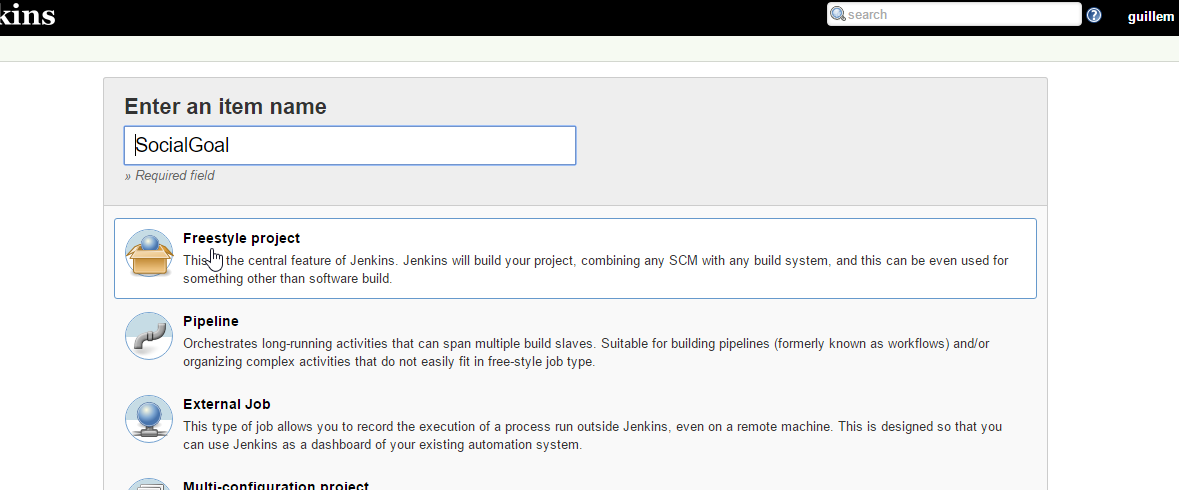
With the Jenkins github plugins it is possible also to link the job with the github project repository.
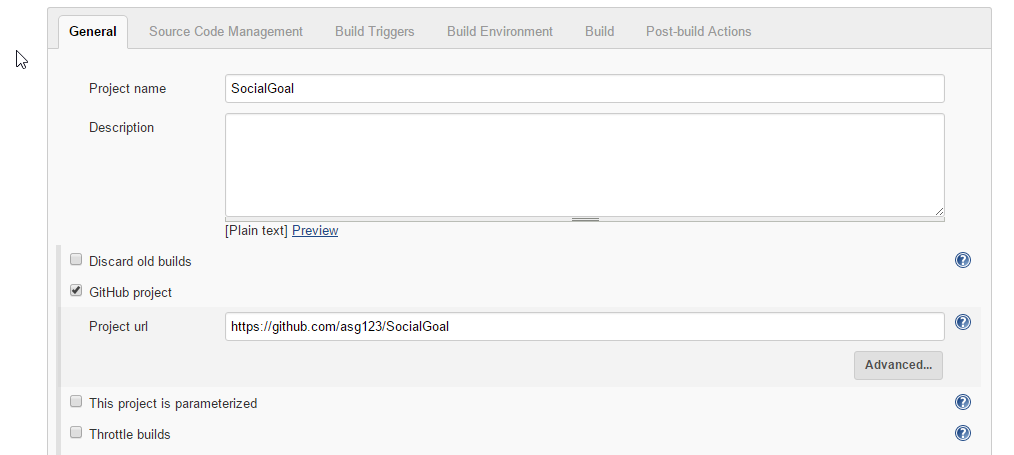
Clone solution
We have to setup the proper git URL so that source code is downloaded before starting the pipeline.
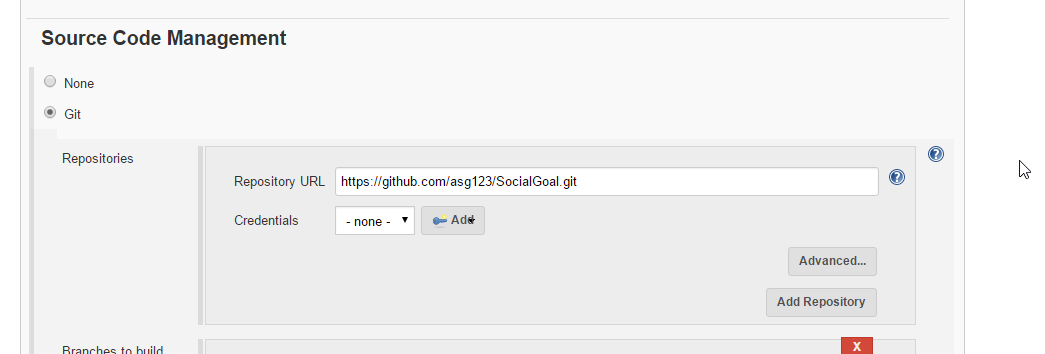
Restore Nuget packages
Before being able to build the solution we have to restore the Nuget packages. This can be done with a simple CMD call.

Build Solution
With all the solution code and dependencies available we can build the project. First we need to add an MSBuild step.
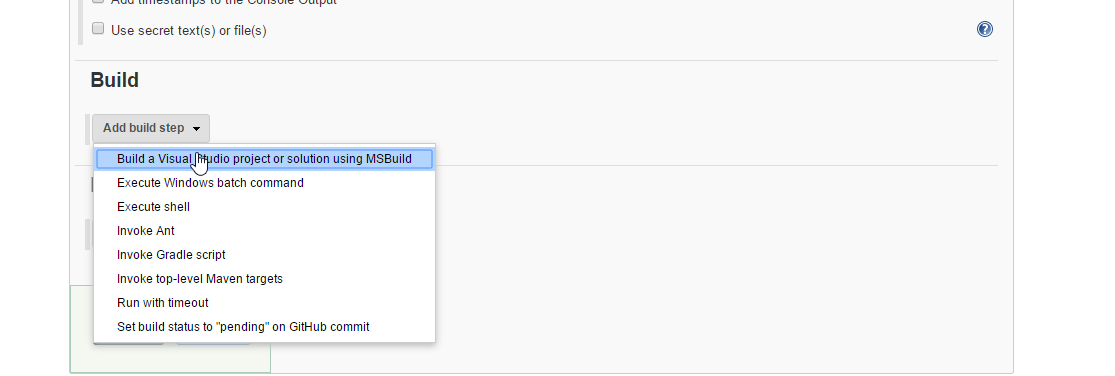
And configure it to build the solution with the proper MSBuild configuration. The configuration has to be set in the Jenkins plugin settings page to use a proper MSBuild executable, in this case I’m using C:\WINDOWS\Microsoft.NET\Framework\v4.0.30319\.

Run Tests
In order to verify that the compiled solution is correct we need to run the test projects available. For this the Nunit Console has to be available for the Jenkins installation. It can be run with a CMD task.

Output
With all this we can build the Jenkins project and confirm that the solution is build without issues.
Build succeeded.
"C:\Users\solas\.jenkins\workspace\SocialGoal\source\SocialGoal.sln" (default target) (1) ->
"C:\Users\solas\.jenkins\workspace\SocialGoal\source\SocialGoal\SocialGoal.Web.csproj" (default target) (2) ->
(ResolveAssemblyReferences target) ->
C:\Windows\Microsoft.NET\Framework\v4.0.30319\Microsoft.Common.targets(1605,5): warning MSB3247: Found conflicts between different versions of the same dependent assembly. [C:\Users\solas\.jenkins\workspace\SocialGoal\source\SocialGoal\SocialGoal.Web.csproj]
1 Warning(s)
0 Error(s)
Time Elapsed 00:00:01.09
[SocialGoal] $ cmd /c call C:\Users\solas\AppData\Local\Temp\hudson7350207192423804840.bat
C:\Users\solas\.jenkins\workspace\SocialGoal>D:\jenkins\NUnit.Console-3.6.0\nunit3-console.exe -work="C:\Users\solas\.jenkins\workspace\SocialGoal" "C:\Users\solas\.jenkins\workspace\SocialGoal\source\SocialGoal.Tests\bin\Debug\SocialGoal.Tests.dll"
NUnit Console Runner 3.6.0
Copyright (C) 2017 Charlie Poole
Runtime Environment
OS Version: Microsoft Windows NT 10.0.14393.0
CLR Version: 4.0.30319.42000
Test Files
C:\Users\solas\.jenkins\workspace\SocialGoal\source\SocialGoal.Tests\bin\Debug\SocialGoal.Tests.dll
Test Run Summary
Overall result: Passed
Test Count: 113, Passed: 113, Failed: 0, Warnings: 0, Inconclusive: 0, Skipped: 0
Start time: 2017-03-05 09:22:49Z
End time: 2017-03-05 09:22:54Z
Duration: 4.972 seconds
Results (nunit3) saved as TestResult.xml
C:\Users\solas\.jenkins\workspace\SocialGoal>exit 0
Finished: SUCCESS
Next Steps
Once compiled the solution we could be publishing the NUnit tests results to a location so that we can track history for test evolution. For instance we can use GHPR to generate an output report like this.
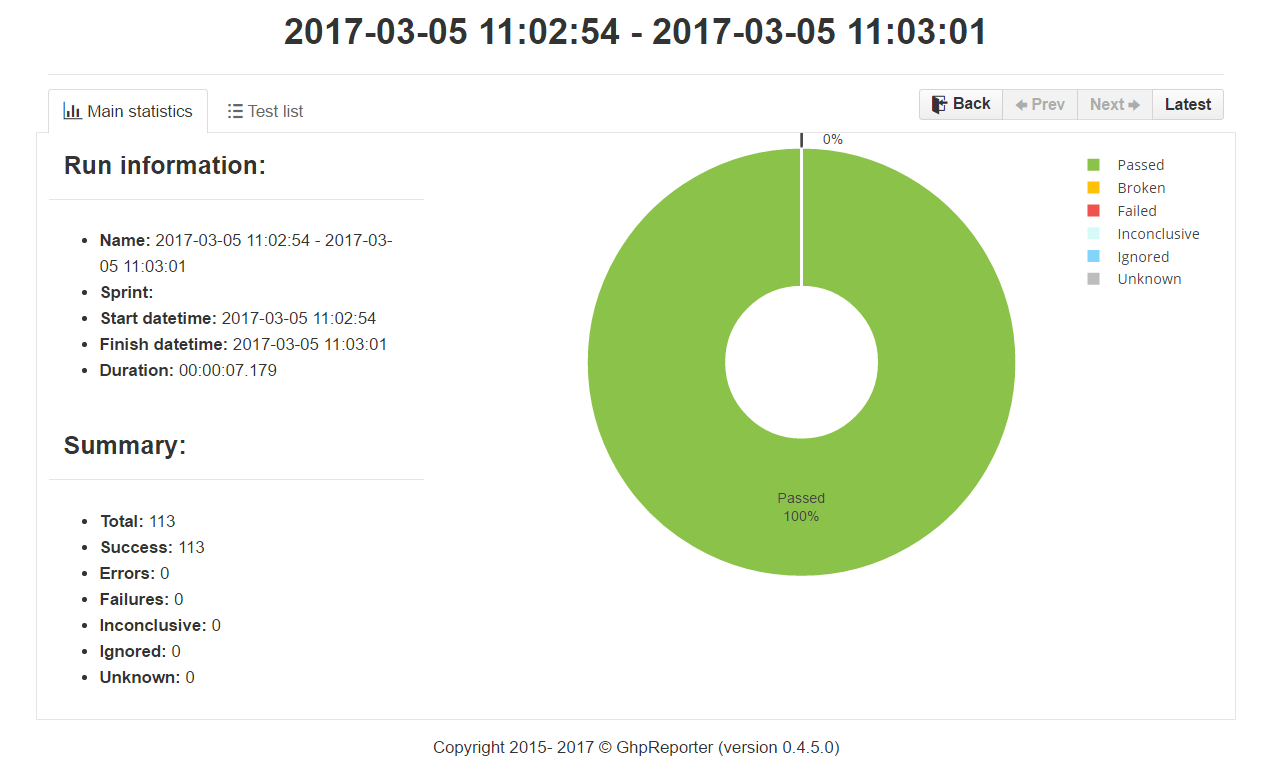
We could setup some Github hooks with Jenkins so that every time a new commit is done to the project it is automatically integrated. It will be interesting also to add more quality metrics like code static analysis with a tool like SonarQube.
Finally with a post build action for successful builds we should move the generated build to an artifacts repository for next steps like deployment.